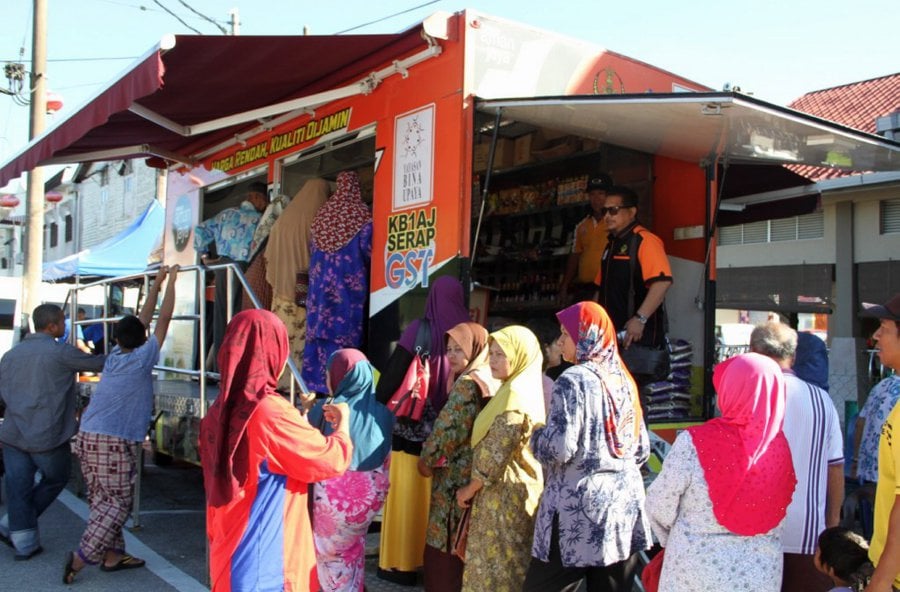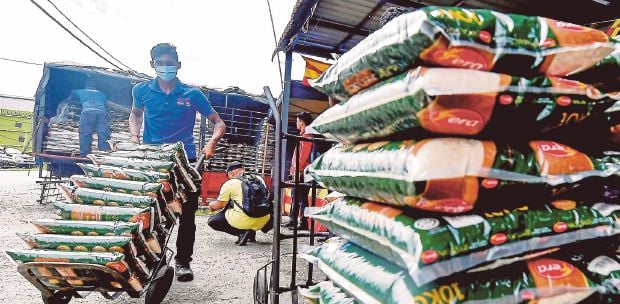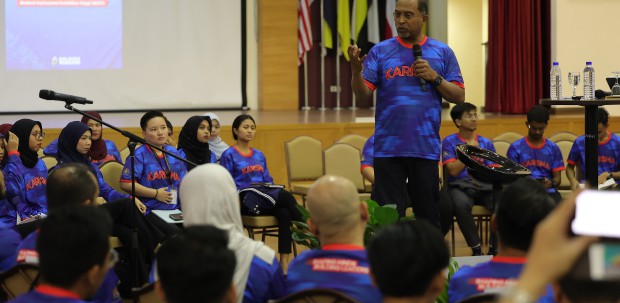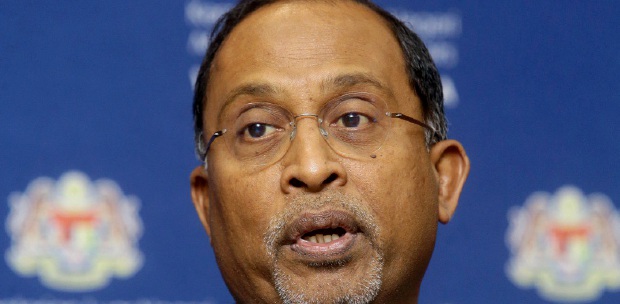IPOH: The Kedai Bergerak 1 Amanjaya (KB1AJ) programme as well as box and food bag assistance were introduced by the state government to lighten the people’s burden.
From mid-2014 to February, the programme recorded a sales volume of RM9.871 million and benefited 254,151 customers.
A total of 2,280 locations were visited, some several times.
Yayasan Bina Upaya Darul Ridzuan (YBUDR) chairman, Datuk Saarani Mohamed said KB1AJ offered 21 types of basic goods at first, and gradually increased it to 41.
“The programme was mooted by Menteri Besar Datuk Seri Dr Zambry Abd Kadir,” said the state Rural Development, Agriculture, Plantation, Information and Human Capital Development committee chairman.
“It is similar to Kedai Rakyat 1 Malaysia (KR1M), which was introduced by Prime Minister Datuk Seri Najib Razak.”
He said a fixed discount of five per cent on the goods was borne by YBUDR or a sponsor, while additional discounts of between five and 10 per cent were paid for by assemblymen.
Customers in the disabled category and e-Kasih list, Saarani said, were entitled to another five per cent discount.
“For example, a 5kg packet of rice is sold at RM13 at the market, but KB1AJ buys it at the factory price of RM11.80 and sells it at the discounted price of RM10.62,” he said.
“Disabled people, who are also on the e-Kasih list, get another 10 per cent deduction. They only pay RM9.44 for each 5kg rice packet, saving almost RM4 on just one item.”
YBUDR chief executive officer Datuk Ismail Saffian said, in the first two months of this year, they had visited 68 locations and 80 more would be visited next month.
The majority, he said, were in rural areas, especially villages, and low-income urban areas.
He said the state government had allocated RM1.5 million for the salaries of the programme’s trainees and drivers, and for petrol and lorry maintenance.
“The response has been good because the prices are even lower than those of KR1M,” he said, adding that they used two eight-tonnes lorries and two five-tonne lorries.
He said YBUDR would recommend to the state government to hold a KB1AJ carnival at least once a month in each of Perak’s 12 districts.”
The carnivals are organised in collaboration with the Federal Agricultural Marketing Authority and Fisheries Development Authority.





